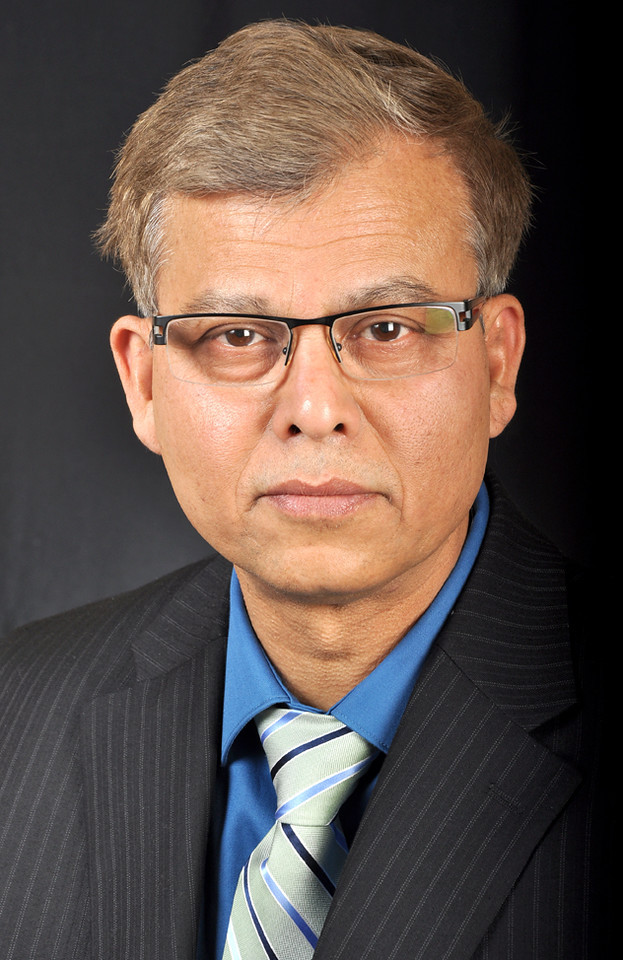Getting to Know: Communication and Social Sciences

EDITOR’S NOTE: College Relations is publishing a monthly series of news articles, features and Q&A interviews highlighting various departments on campus in an effort to assist the faculty and staff in gaining an increased awareness about and understanding of each other’s roles and responsibilities.
The March Q&A is with Dr. Shafiq Rahman, chair of the Communication and Social Sciences department.
Q: What are your duties as department chair?
As the Chair of Communication and Social Sciences department, I coordinate the articulation and execution of department’s mission and strategic plans. I schedule and coordinate department meetings to discuss and assist in implementing initiatives in curricular assessment and catalog revisions, scholarship selections, budget allocations, student retention and recruitment, academic year and summer class schedules, faculty assignments, and strategic plans. I maintain regular contact with my dean, other deans and the administration, and attend chairs’ meetings and annual chairs’ retreats, and communicate decisions made in those meetings to department faculty and staff.
Q: What has changed in the fields of communications and social sciences in the time you have been at Chadron State?
We offer undergraduate degrees in three academic fields — Communication, History and Social Sciences. I can say with some level of certainty that Communication has changed significantly, both in the profession and in academia. Digitization and convergence have created a media environment in which the boundaries of distinct traditional media (print, electronic, etc.) no longer exist. Industries now demand a new set of skills but the traditional skills such as writing, good judgement, critical thinking and problem solving are still valued. With our limited resources we focus on those enduring skills and produce graduates who can learn quickly and adapt in an ever-changing work environment. I anticipate History and Social Science have not undergone as much change as Communication but some key concepts such as citizenship and nation state have been re-conceptualized in a globalized world.
Q: What strengths or advantages does your department offer to potential CSC students?
Almost all of our full time faculty members have Ph.D. degrees, which means they have a high level of expertise in their fields. Our faculty members care about student learning and they often work with students individually. Our class sizes are small, which provides students with opportunities to interact with instructors and their fellow students.
Q: What student opportunities are offered in the Communications and Social Sciences department?
Communication and Social Sciences offer a variety of opportunities for students to engage in curricular and extracurricular activities. Our Department organizes the Big Event, providing CSC students an opportunity to give back to the community. Our students also may get involved in the following clubs: Social Science Club, Native American Club, Cuba Libre Study abroad, and Phi Alpha Theta, an honorary organization.
Q: What is the relationship between your department and “The Eagle” student newspaper?
“The Eagle” is a student-run newspaper. Any CSC student can work on the newspaper but a significant number of Communication students work in the editorial positions. A Communication faculty member works as the faculty adviser of “The Eagle.”
Q: What career paths do graduates of your department generally pursue?
Communication and Social Sciences graduates may potentially pursue careers in a variety of fields. The writing, thinking, and reading skills gained through the Communication and Social Sciences translate nicely on the general job market.
Specifically, History and Social Sciences graduates can pursue careers in the following: teaching in schools in the region and pursuing graduate education. A strong cohort of recent history graduates are now on assistantships in MA programs. Some graduates pursue education in other fields as well. For example, one recent history graduate pursued graduate education in law school.
Communication graduates can pursue careers in the following areas: public relations, advertising and marketing, communication education, electronic media, television, print and radio broadcasting, business communication, and health care.
Generally, our graduates can be employed in the following areas: government and politics,
international relations and negotiations, and social and human services.
Q: What do you like best about teaching at Chadron State?
Chadron State College is a teaching-intensive liberal arts institution that primarily serves the Great Plains region. I appreciate the collegiality among faculty and staff members. Because we are an open access institution, we enroll a wide variety of students in terms of backgrounds and capabilities. This can bring challenge, as well as opportunities. For example, our Transitional Studies program serves the needs of students who may not be fully prepared for college. Our Essential Studies Program is a testimony of faculty-driven curriculum that serves the needs of our students. I feel CSC values my expertise, passion and my commitment to student learning. Even though CSC is a small institution with limited budget, the institution supports my research.
Category: Campus News, Communication, Social Sciences
